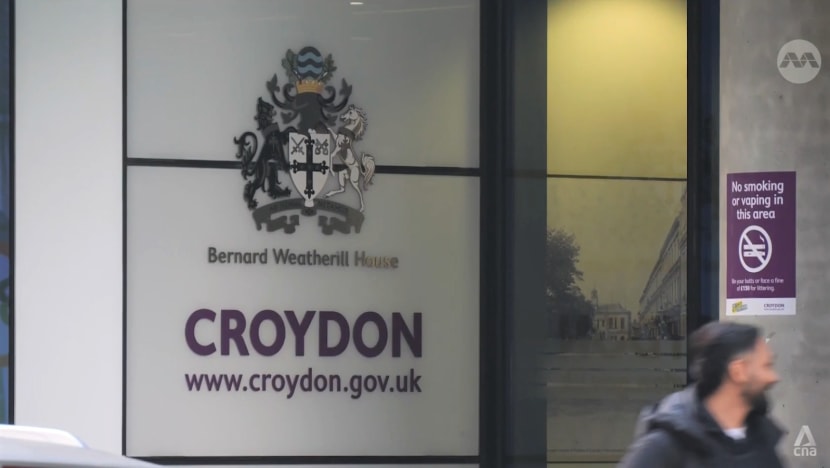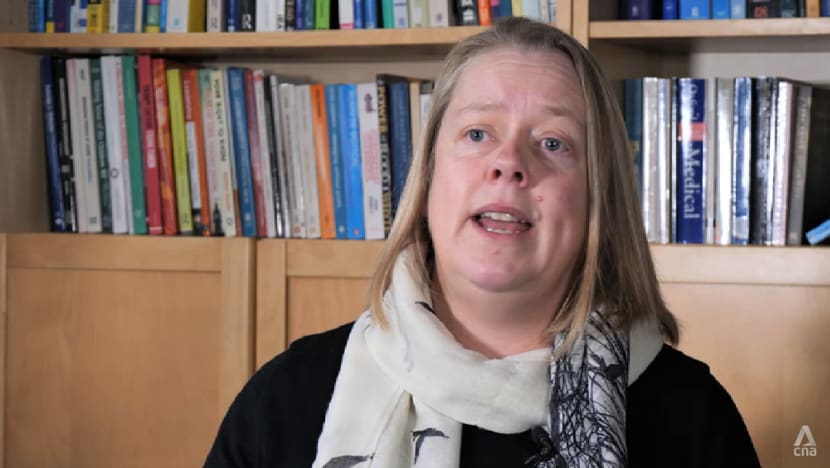1 in 5 UK local councils likely to declare bankruptcy amid mounting debts, service cuts
Cash-strapped English councils are being forced to sell publicly owned spaces and other assets to raise funds.

The Croydon Council has declared effective bankruptcy for the third time in two years.

This audio is generated by an AI tool.
LONDON: Conservative MPs in England are urging the government to increase funding for local councils which are facing severe strains on their finances.
The government has announced a 6.5 per cent increase in council funding this year, adding that any more would be unaffordable.
But councils argued it does not undo a real-terms cut of 40 per cent over a ten-year period, and warned that it is the residents who will feel the most impact.
SELLING ASSETS AMONG OPTIONS FOR RAISING FUNDS
Funding cuts are having a severe impact on local councils, which often find themselves in a difficult position of raising money while cutting services for the residents, said observers.
One in five cash-strapped councils have warned that they will effectively go bankrupt in the coming year.
Selling assets is one of their few options for raising funds when money from the central government does not go far enough.
At Mind in Croydon, a charity that promotes mental health, for instance, people in need of help can receive counselling services and attend support groups. This comes as Britain’s already-stretched health service outsources much of the mental health support to charities.
But the organisation has seen its funding slashed and could lose one of its facilities, which the financially troubled Croydon Council is considering selling to pay the interest on its debts.
The local council in Croydon, a south London borough, has declared bankruptcy three times since 2020.

RISING DEMAND FOR SUPPORT SERVICES
One help recipient at Mind in Croydon, who only wanted to be known as Vicky, is disappointed that such support services are affected.
“For five years, I didn’t leave my flat. I was very, very ill. I ended up on drugs. It just got so bad I ended up in hospital all the time. I was just trapped, there was nowhere safe to be,” she added.
“And now I find out that they’ve lost two staff. They are not going to be open as much. It just feels devastating because I was relying on coming here more.”
Demand for these services is only rising. Last year, Mind in Croydon helped more than 8,000 people, an increase of 9 per cent from the year before.
The organisation said limiting its remit is short-sighted.
“If we’re able to support people to manage what they’re experiencing, maintain their tenancies and their home, and (they) are able to contribute to society by going in to work and being able to support their families, of course that will save an unfathomable amount of money further down the line,” said Mind in Croydon CEO Emma Turner.
“Because they won’t be needing costly secondary mental health services or indeed be subject to much more stringent processes.”
Related:
MARGINS ARE BECOMING TIGHTER
Croydon is not alone. Since 2018, eight local authorities have issued 12 warnings that they were about to exceed their budget.
Collectively, they are responsible for areas where more than 3 million people reside.
For some councils, financial mismanagement was to blame. But increasingly, margins are just becoming tighter, said observers.
“In terms of increasing their income, they’re quite limited in what they can do,” said Institute for Government senior researcher Stuart Hoddinott.
“Within a financial year, they can’t increase their council tax by more than a threshold the government sets, they can’t really raise too much in other taxes, because they don’t have any other revenue raising powers.
“They can try to increase sales and fees, things like car parking charges, but that’s quite small in the overall scheme of things. More likely, they’ll look to try and cut spending on other service areas.”
These areas could include social care, cultural spaces and leisure facilities.














